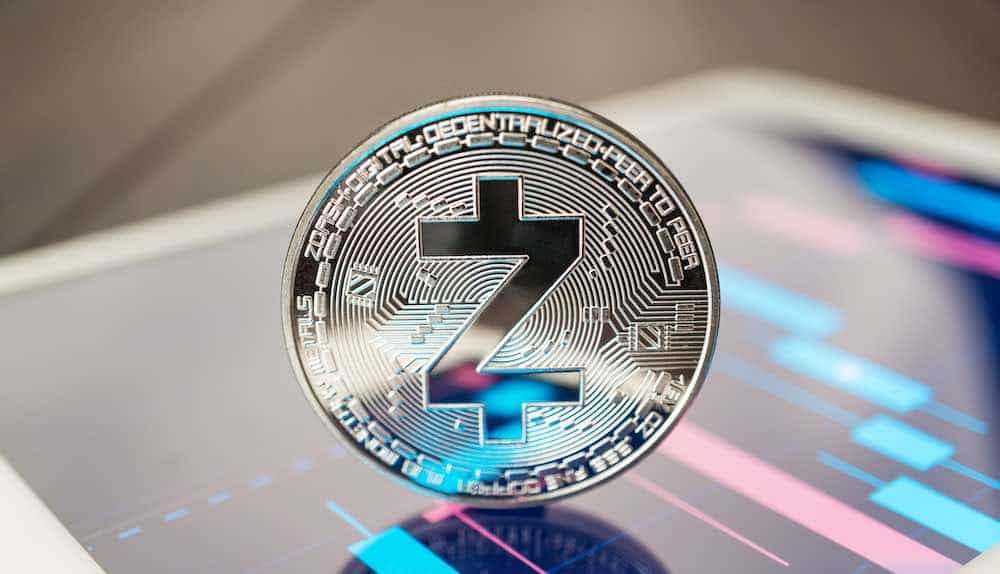
When cryptocurrencies came to the scene, they were heralded as the future of money- where transactions would be peer-to-peer, decentralized, digital and private. Privacy was particularly a major appeal, with the unique wallet addresses ‘promising’ anonymity of users. But as time went by, it would be proven that bitcoin transactions were pseudonymous, rather than completely anonymous. The world’s first-ever cryptocurrency did not exactly guarantee financial privacy since data scientists and forensic experts could trace transactions back to both senders and recipients. This is where Zcash (ZEC) comes in!
Zcash is a 3rd generation cryptocurrency with a primary focus on privacy. The ZEC coin is the native token of Zcash and is a lot similar in technical terms to bitcoin, but it enhances privacy by leveraging zero-knowledge technologies that guarantee complete anonymity on the blockchain network. Zcash represents the true, original cryptocurrency ideals, but is it a coin worth your attention, and money?
Zcash: Understanding the Privacy Coin
Bitcoin
Zcash was founded by cryptography expert Zooko Wilcox-O’Hearn, a distinguished IT entrepreneur that has had a hand in numerous other digital security and privacy projects in the crypto space. Zcash adopted the bitcoin codebase and blockchain infrastructure but implemented a few innovations to enhance the security of users and transactions.
To understand this, let’s observe how bitcoin transactions are made. All transactions made using bitcoin are displayed on the public blockchain. The amount, as well as the relevant public addresses, are displayed on the immutable public ledger. This does not actually reveal the identities of the parties performing the transactions, but it does not provide total anonymity either. Blockchain forensics and data science have proven that it does not take much to extract a lot of related information for specific wallet addresses. This is why bitcoin transactions are said to be pseudonymous, rather than anonymous.
The Zcash Difference
In contrast, ZEC transactions are completed in two ways: transparent and shielded. Transparent Zcash transactions work in practically the same manner as bitcoin transactions. They are therefore pseudonymous in nature. However, by default, all Zcash transactions are shielded. Zcash implements a cryptographic technology known as zk-SNARKs, which stands for ‘zero-knowledge succinct non-interactive arguments of knowledge’. Using this protocol, two users are able to perform a transaction without revealing their addresses or the amounts involved.
Zk-SNARKs works in a manner that provides proof of information on the public ledger (blockchain) without revealing the content of the information. A record is made that a transaction has been successfully completed, but the public cannot see the addresses or amounts involved. On the blockchain, there is still a ‘prover’ that must assure the ‘verifier’ that a transaction has been made without revealing any additional details. It is basically like calling your bank to confirm if money is available in your account. Your bank agent will be able to confirm the availability of funds without revealing the amount or even the sender. Beyond Zcash, zero-knowledge technologies have important use cases in the sensitive financial world where privacy is very important.
Zcash users have the option of performing either transparent or shielded transactions. This flexibility and convenience is very handy and makes a strong case for ZEC as a coin that adheres to the true ideals of cryptocurrency.
How to Mine and Store Zcash
Mining ZEC is a lot similar to mining bitcoin. It is how transactions are verified and secured on the Zcash blockchain network. When it was founded, Zcash intended to democratize the world of mining because it became harder and more expensive for individuals who could not afford specialized ASIC (application-specific integrated circuit) hardware. Zcash mining was made ASIC-resistant, allowing users with CPUs and GPUs to also participate in mining. Nonetheless, as time went by, mining Zcash became more and more competitive that it only made sense for miners to utilize ASIC hardware.
Like bitcoin, there will only ever be 21 million Zcash. Mining is the process that generates new ZEC coins into circulation. The genesis Zcash block was mined on October 28th 2016. Zcash implemented a Founder’s Reward for the team that helped build Zcash. For every block mined, the mining reward is split in the ratio of 80:20 for miners and founders respectively. The founder’s reward helps support ongoing research and development by the not-for-profit team that maintains the Zcash blockchain network.
With the appropriate hardware, a prospective miner will just need to install the Zcash software so as to start mining the coin. Smaller miners who cannot afford to build a huge mining farm are encouraged to join mining pools so as to leverage resources and computational power efficiently. This way, they can mine better and faster. It is important to perform due research before joining a mining pool. A good mining pool will share rewards proportionately, have low minimum payouts and provide excellent support to miners.
Like bitcoin, ZEC is stored in a crypto wallet. Wallets allow you store, send and receive Zcash. They are generally categorized into cold and hot wallets. Hot wallets are connected to the internet and can either be desktop-based or mobile-based. Hot wallets are the most common among users because they are easy to set up and offer a great deal of flexibility and convenience. However, hot wallets are generally considered less secure than cold wallets. On the other hand, cold wallets do not have an internet connection. They can be USB-based or resemble a hard drive, or even just printed on paper and are suitable for storing large amounts of coins securely. Wallets are like your bank account and appropriate measures should be taken to secure them properly.
How to Buy ZEC
Zcash is a popular altcoin that is easily available on numerous crypto exchanges. Some exchanges support shielded Zcash purchases, but others support transparent-only Zcash purchases. It is always recommended to perform due diligence when choosing a crypto exchange. Consider factors such as asset variety, fees, user-friendliness as well as security and insurance policies. Most exchanges accept purchases via bitcoin, debit/credit cards, bank transfer, or even other popular cryptocurrencies.
ZEC can also be bought on peer-to-peer crypto trading sites. On such sites, buyers and sellers can exchange Zcash coins using convenient local payment methods. Peer-to-peer crypto trading sites are very easy to use and are a quick and convenient way to buy Zcash coins.
Why Buy ZEC?
Here is why Zcash is a lucrative altcoin worth your attention and money:
- Privacy
The application of zero-knowledge technologies ensures that Zcash is a solid privacy coin. Identity protection is guaranteed as well as the privacy of transaction details. However, there is the option of selective exposure if required, especially for regulatory, audit or compliance purposes.
- Limited Supply
Like bitcoin, there will only be a maximum of 21 million Zcash coins in circulation. This limited supply essentially means that Zcash has no ceiling on its value if demand increases over time.
- Faster Transactions
In addition to privacy, Zcash was also meant to improve upon the speed of transactions compared to bitcoin. Zcash has a shorter block time of 2.5 minutes compared to bitcoin’s 10 minutes. This theoretically means that Zcash transactions are four times faster than bitcoin. It also means that Zcash is more scalable and can be more suitable as a global payments system.
- Zcash Community
Zcash is supported by a passionate community that appreciates its advanced privacy technologies as well as other innovations. To start with, the coin is backed by the Electronic Coin Company, which is an experienced team made up of cryptographers, scientists, developers and other top professionals. The team has led developments on the Zcash platform and continues to inspire numerous other innovations in the broader crypto scene. In addition to the development team, Zcash has also attracted corporate backers, numerous users and other enthusiasts that continue to support the promising coin.
- Low Price
Compared to bitcoin, Zcash is still cheap. Zcash was hugely popular when it was launched, with the resulting huge demand pushing it to achieve an all-time high price of over $5900. However, it has since fallen and in 2021 it has traded in the $100-$300 range. Zcash remains a top 100 crypto coin and its current value does not reflect its true potential.
Why is Zcash a Risky Investment?
- Regulation
Regulatory pressures are a concern for all cryptocurrencies, but the weight is even heavier for the so called ‘privacy coins’. Zcash was once infamously listed alongside Monero and Bitcoin as one of the top 3 coins utilized in internet-related crimes. This negative publicity triggered a massive crackdown on Zcash, and even triggered its delisting from some crypto exchanges. This is one of the reasons Zcash is said to have fallen from its glory.
- Competition
There is still a demand for privacy coins within the crypto community despite the unique challenges they face and Zcash is not the only privacy coin around. Various other privacy coins stand out such as Monero, Verge, Horizen, DASH and Beam. Privacy coins still have an appeal in the crypto community, but demand is not limited to Zcash.
- Volatility
Cryptocurrencies are generally volatile, but privacy coins are even more volatile than other types of coins and tokens. They face the constant threat of delisting from exchanges or even becoming a focus of attention for both regulators and policing agencies.
Zcash: Invest or Trade?
If you wish to gain exposure to Zcash, you will have to decide whether to trade or invest in the ZEC coin. When you invest in Zcash, you actually buy the coins and store them in your wallet. For an investor, the belief is that the coin held has positive fundamentals that will drive its demand and price higher over time. You can then sell the coin for profit at a later date. Positive fundamentals include widespread adoption, listing on multiple exchanges, advanced technological innovations, as well as a supportive crypto community. Thus, a Zcash investor will always be in for the long run.
On the other hand, trading in Zcash is typically done on a short term horizon. This can be done on peer-to-peer trading sites or exchanges, where a trader will seek to buy Zcash at a lower price and sell it for profit at a higher price within a short to medium timeframe. But effective trading can also be done via CFD brokerage firms where traders can speculate on the price of Zcash without actually owning the coin. When trading CFDs (contracts for difference), traders simply make a prediction on the price of Zcash. This means they can make profits on both rising and falling prices. A correct prediction results in profits, whereas a wrong prediction results in losses. The volatility of Zcash makes CFD trading a lucrative option for some traders.
Overall, both investing and trading Zcash offer different types of rewards and risks. You can choose to either trade or invest in the coin depending on your risk profile as well as investing goals and ambitions.
The Future of Zcash
The future of Zcash is intertwined with the future of financial privacy. The zk-SNARKs that enable privacy on the Zcash network is a great technological feat that distinguishes the coin from its competitors. Additionally, Zcash has an active development community that is continually upgrading its blockchain network. Still, as a privacy coin, ZEC faces unique risks that include added scrutiny by regulators and policymakers, as well as the threat of delisting from major exchanges. However, it remains a well-known coin whose future can only be bright as the public and businesses demand more privacy in certain aspects of their financial transactions.